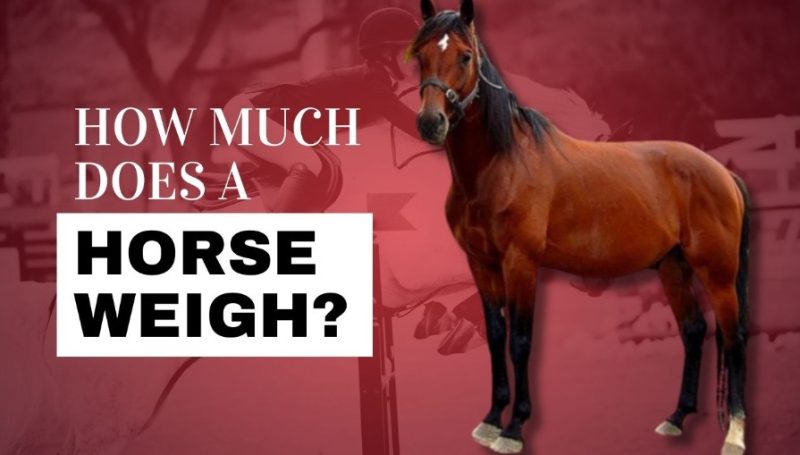Horses have been essential companions to humans for centuries, whether for transportation, work, or leisure. These majestic creatures are not only valued for their speed, intelligence, and endurance but also for their impressive size. One of the most common questions people have about horses is, “How much does a horse weigh?” While this might seem like a simple question, the answer is not as straightforward as you might think. Horses come in all shapes and sizes, and their weight can vary significantly depending on various factors.
In this article, we will delve into the complexities of horse weight, discussing the factors that affect it, the average weight of different horse breeds, how it changes throughout a horse’s life, and much more.
What Influences the Weight of a Horse?

The weight of a horse is influenced by several factors that range from the breed of the horse to its age, diet, and overall health. Understanding these variables is essential to grasp why two horses of the same height may weigh very different amounts.
Breed of the Horse
The breed of a horse is one of the most significant factors determining its weight. There are a wide variety of horse breeds, each with distinct characteristics. Some horses are bred for speed and agility, while others are bred for strength and stamina. As a result, the weight of a horse can vary dramatically depending on its breed.
Draft horses, for example, are massive animals that were historically bred to pull heavy loads, and they can weigh over a ton. In contrast, lighter breeds such as the Arabian or Thoroughbred are much smaller and weigh significantly less. Let’s take a closer look at how different horse breeds compare in terms of weight.
Age and Size of the Horse
A horse’s age and size also play crucial roles in determining its weight. Foals, or young horses, are significantly lighter than adults, weighing only about 60 to 100 pounds at birth. As they grow, their weight increases rapidly, reaching full maturity by around 4 to 5 years of age. However, even within the same breed, the weight of a horse can vary depending on its individual genetics and size. Taller horses generally weigh more, while shorter ones weigh less.
Diet and Health
A horse’s diet is essential for maintaining its weight. Horses are herbivores, which means their diet consists primarily of grass, hay, and grains. A balanced diet rich in nutrients and fiber ensures that a horse gains muscle mass and stays healthy. On the other hand, poor nutrition, underfeeding, or specific health issues can cause weight loss or hinder muscle development. Regular exercise also impacts a horse’s weight. Active horses tend to have more muscle mass, which contributes to a higher weight.
Average Horse Weight by Breed
Now that we understand the factors that influence a horse’s weight, let’s take a look at the average weight of horses across different breeds. Horses vary greatly depending on whether they are draft breeds, light breeds, or ponies.
Heavy Draft Horses (Clydesdale, Percheron, Belgian)
Draft horses are large, muscular horses bred for heavy work such as pulling carts and plows. These horses are known for their immense size and strength, and their weight reflects their powerful build.
- Clydesdale: These iconic horses are often associated with the famous Budweiser commercials. They typically weigh between 1,600 and 2,000 pounds, with some individuals reaching even higher weights.
- Percheron: A highly versatile breed, Percherons are used for a variety of purposes, including agriculture and driving. They generally weigh between 1,800 and 2,400 pounds.
- Belgian: One of the largest draft horse breeds, Belgian horses are incredibly strong and can weigh between 2,000 and 2,400 pounds.
Light Horse Breeds (Arabian, Thoroughbred, Quarter Horse)
Light horse breeds are often bred for speed, agility, and endurance. These horses are typically used in racing, show jumping, and other competitive events. Due to their smaller build, they weigh significantly less than draft breeds.
- Arabian: Known for their stamina and endurance, Arabians are one of the oldest horse breeds. They typically weigh between 900 and 1,200 pounds.
- Thoroughbred: Famous for their use in horse racing, Thoroughbreds weigh between 1,000 and 1,200 pounds. They are lean and muscular animals built for speed.
- Quarter Horse: This breed is widely used for rodeo sports and racing in short distances. Quarter horses typically weigh between 1,000 and 1,200 pounds, depending on their size and age.
Pony Breeds (Shetland, Welsh, Miniature)
Ponies are smaller than regular horses and are often bred for children’s riding or lighter work. Their weight is considerably less than that of larger horse breeds.
- Shetland Pony: Shetland ponies are small but hardy animals that typically weigh between 400 and 450 pounds. They are strong for their size and are often used for children’s riding.
- Welsh Pony: This versatile breed varies in size, but most Welsh ponies weigh between 500 and 900 pounds, depending on their type.
- Miniature Horse: As their name suggests, miniature horses are tiny horses that generally weigh between 200 and 350 pounds. They are primarily used as companion animals or for show purposes.
Weight of Horses at Different Life Stages
A horse’s weight changes significantly over the course of its life. From the time a foal is born to when it reaches full adulthood, its weight increases steadily. Understanding how a horse’s weight fluctuates throughout its life is important for any horse owner or enthusiast.
Foals (Newborn Horses)
At birth, a foal is relatively light compared to an adult horse. Foals generally weigh between 60 and 100 pounds, depending on the breed and size of the mare. In the first few months of life, foals grow rapidly as they nurse from their mothers and start to develop muscle mass and bone density.
- Newborn Foal Weight: 60-100 pounds (depending on the breed)
Yearlings and Two-Year-Olds
As foals grow into yearlings and then two-year-olds, their weight increases substantially. At one year of age, most horses weigh between 400 and 600 pounds, and by the time they reach two years, they can weigh between 700 and 1,000 pounds.
- Yearling Weight: 400-600 pounds
- Two-Year-Old Weight: 700-1,000 pounds
Adult Horses
Adult horses typically reach their full weight by the time they are around 5 years old. Adult horse weight varies greatly depending on the breed, with smaller breeds weighing around 900 pounds and larger breeds weighing upwards of 2,400 pounds. It’s important to note that weight can fluctuate based on health, diet, and exercise levels.
- Adult Horse Weight: 900-2,400 pounds (depending on breed and size)
The Science Behind a Horse’s Weight
Understanding the science of how horses gain weight is key to understanding their overall health and performance. Horses are herbivores, which means they require large amounts of fiber in their diet. This fiber is broken down in their digestive system, allowing them to extract the nutrients they need to build muscle and maintain body fat. A horse’s body is designed to store energy in the form of fat, which can be burned during physical activity.
Muscular Development and Bone Structure
The size and strength of a horse’s muscles and bones are directly linked to its weight. Horses develop large, strong muscles, especially in their legs, back, and neck. These muscles enable them to perform various tasks such as running, jumping, and carrying loads. Additionally, a horse’s bones are dense and heavy, contributing significantly to its overall weight.
Impact of Body Condition
A horse’s body condition is another crucial aspect of its weight. A healthy horse should have a good muscle-to-fat ratio. Horses that are too thin or too fat can suffer from various health issues. Overweight horses may experience joint problems, heart disease, or laminitis, while underweight horses may suffer from malnutrition or muscle atrophy. It is essential to monitor your horse’s body condition to ensure it stays healthy and active.
How to Accurately Weigh a Horse
If you want to determine the exact weight of a horse, there are several methods you can use. Here are the most common ways to accurately weigh a horse:
1. Using a Horse Weighing Scale
The most precise way to measure a horse’s weight is by using a weighing scale specifically designed for large animals. These scales are typically available at veterinary clinics, horse competitions, and some stables. They work by placing the horse on a platform, where its weight is measured electronically.
2. Weight Tapes
Weight tapes are an affordable and easy way to estimate a horse’s weight. These tapes are marked with measurements that correspond to a horse’s estimated weight based on the girth (circumference) of its chest. While not as accurate as scales, weight tapes are a convenient tool for horse owners and trainers who need to monitor their horse’s weight.
3. Calculating Based on Body Measurements
Another way to estimate a horse’s weight is by using a formula that takes into account the horse’s girth, length, and height. Several online calculators can help you determine a horse’s weight based on these measurements.
Surprising Facts About Horse Weight
Here are some surprising facts about horse weight that you may not know:
1. Horses Can Gain and Lose Weight Quickly
Horses can gain or lose weight relatively quickly, depending on their diet, exercise, and health. If a horse’s diet changes or it experiences a decrease in physical activity, its weight can fluctuate in just a few weeks.
2. Heavier Horses Require More Food
Larger horses require more food to maintain their weight. For example, a massive Clydesdale may need up to 25 pounds of hay daily, while a lighter horse like an Arabian might need only 15 pounds of hay per day.
3. Horses Can Be Overweight
Just like humans, horses can become overweight if they are not exercised regularly or are overfed. Obesity can lead to various health problems, including joint issues, metabolic disorders, and even laminitis.
Conclusion: Understanding Horse Weight
In conclusion, the weight of a horse depends on several factors, including breed, age, diet, and health. Horses can range from a mere 200 pounds for a miniature pony to over 2,400 pounds for a massive draft horse. Understanding the complexities of horse weight can help you better care for these incredible animals, ensuring that they remain healthy and strong throughout their lives. Whether you’re a horse owner, enthusiast, or simply curious about these magnificent creatures, understanding their weight gives you a deeper appreciation for their biology and their important role in our world.






